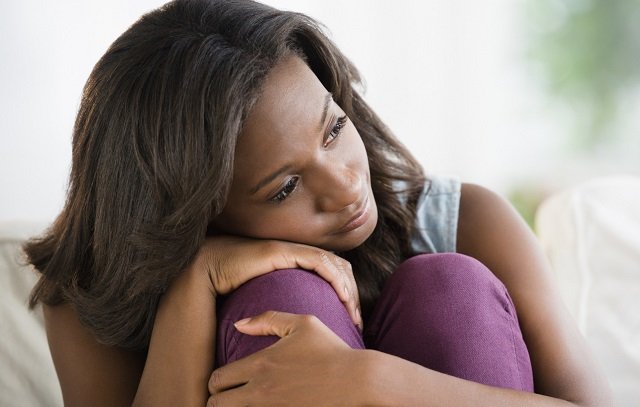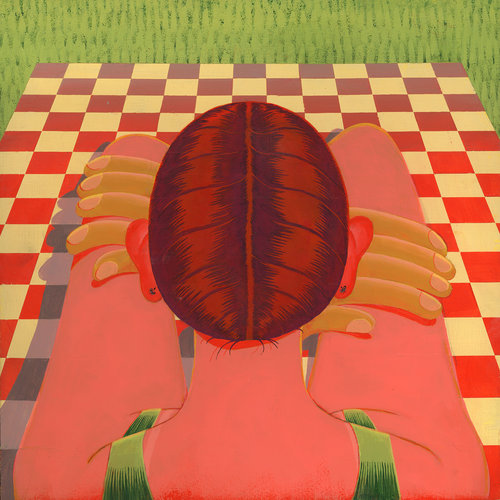We all have a different relationship with food. While some have managed to eat and enjoy food in a healthy way, a lot are unable to. These six Nigerian women share with us their unhealthy relationship with food.
CONTENT WARNING: MIGHT BE TRIGGERING FOR PEOPLE WITH EATING DISORDERS OR PEOPLE WITH AN UNHEALTHY RELATIONSHIP WITH FOOD
Yasmin, 18
I used to suffer from body dysmorphia in mid-high school. I thought nothing looked good on me, so I didn’t wear dresses or skirts or whatever was clothing was considered fitted. Also, I consumed a lot of Korean entertainment at that time, and I just found myself wanting to look skinny. There was added pressure from my mum because she projects her “self-hate” and criticizes the tiniest increase in size. I started to eat less in SS3 and had mild gastritis. It felt like I was developing an ulcer.
After I graduated, I put on a good amount of weight because I wasn’t living at home. When I came home, the backlash from my mother was crazy. I started to eat only boiled groundnuts and zobo and dropped a lot of weight drastically. With that, I also lost my sense of appetite too. My relationship with food got so bad that when I was in University. I would eat once in 3 days, and now if I do eat I’m calculating how much to eat.
Mina, 19
I was diagnosed with anorexia at the age of nine. I didn’t shed my baby fat, and amongst all my siblings I was the fat and ugly one. My mum hated that. She constantly insulted me and bought me big clothes to hide my body. One day during dinner, she told me “if I were you, I would stop eating so as to lose weight”. So, I did. I stopped eating.
I didn’t eat anything apart from water and one coaster biscuit every day for 2 months. Then my mum started complimenting my new slim self. In order to get more validation, I stopped eating completely for close to a month. I only took water. One day while at school, I collapsed and landed in the hospital. I spent two years there, shuttling from the ER to the hospital bed and then a year in a psychiatric hospital.
When I got out, I started eating, but no matter how little I ate I added weight. So, the abuse from my mother got worse. It affected my self-esteem and a few years after the first diagnosis, I got rediagnosed with bulimia nervosa. Currently trying to make myself eat even though I hate eating, but it’s painful because people will not stop talking about my weight. I am trying my best.

Tope, 20
My relationship with food had always been emotional, right from when I was little. I associated certain foods with particular emotions so I could only eat them while I felt those emotions. A lot of food was associated with sadness, so I hardly ate. That, however, did not stop me from adding a lot of weight. Eventually when I became a teenager, I saw how the girls that were treated better were skinnier, so I tried to lose all of the weight. Food automatically became bad. I lost so much weight everyone kept complimenting how I looked, but I knew I was dying inside.
After fainting one day because I had not eaten for three days and was working out, my doctor advised me to change my eating habits. Then I started to eat, but it seemed like I could not stop. I ate when I was sad, angry, happy, in love, etc. I moved from one unhealthy relationship with food to another and I just wish I could eat like a normal person.
Florence, 21
My relationship with food and eating is very weird. I’m actually slightly irritated by the thought of food, but sometimes I eat ginormous portions and then I feel like I need laxatives. Not because I want to be thin, I just feel like I need it. There are times that I’ve eaten so much I had to throw up so i could be comfortable. Or I ate so much I couldn’t sleep. Right now, I’ve not eaten in about 4 days and I’m neither hungry nor do I feel the need to eat. One day, my dad said in passing that he can go days without eating, and he’s a picky eater so it’s probably genetic.
Janet, 25
My relationship with food is weird. When I graduated secondary school at the age of 13, I was the youngest and also the fattest. I had gotten assaulted the year before that, and I ate a lot while I was trying to recover from the trauma. The goal for me was to make myself as undesirable as possible, so I was 13 and I weighed 92kg. I got my official diagnosis five years ago.
When I got into university, I was suddenly around all these skinny people who fat-shamed me and so I overcompensated and stopped eating. I used to eat one plantain with fish in a week., then drink water for the remaining six days. This was my routine while also dealing with the stress of medical school.
I got an official diagnosis five years ago, and at this point, I have anorexia nervosa. I have a fear of gaining weight and an overwhelming desire to be thin. The prevailing thing about anorexia nervosa is that no matter how skinny we are, we always feel like we’re fat. Due to that thought, we take in very little so as to get to a specific weight we’ve put in our heads. For me, I used to want to weigh 30kg and it was not possible because I am 5’9.
When I came to the realisation that I was a child and nothing about what I did or said was gonna change what those men did to me, the self-image started changing. I also needed a lot of energy to run around the hospital so I tried to burn off the food I ate by walkign around the hospital. Then I had cancer and had to eat healthy to counteract the effects of the chemo. On most days now, I treat food as a drug. I don’t want to eat it, but I know I’ll fall sick and not be able to treat my patients without it, so I eat.
Chidinma, 20
Well, I’d say it’s been a very love-hate relationship. I love food generally and it makes me happy but at the same time, it also makes me really miserable. It feels good at the moment but afterwards, I always felt awful and I hated being full. That’s actually how I started purging, I hated feeling full, so I purged to reduce the guilt or kind of compensate for eating so much. If I don’t purge, I’d be miserable for a while and that usually triggers a binge or a fast.
Nowadays, I think it’s almost become some kind of weird addiction because I find myself actually going out of my way to binge, just so I could purge it all out. It’s like I kind of have some weird illusion of control over what goes into my body.
For more stories of women and the things they do, please click here
[donation]



